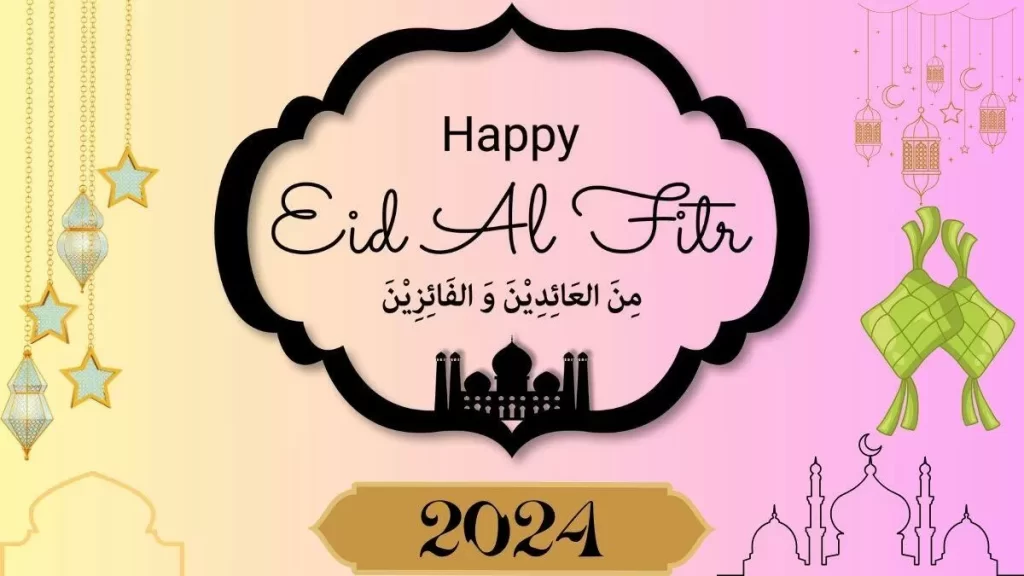How to Say Happy Eid: A Comprehensive Guide
Eid celebrations are significant events in the Islamic calendar, marking the end of Ramadan with Eid al-Fitr and the sacrifice of Eid al-Adha. Wishing someone a happy Eid is a way to share in their joy and express goodwill. This article will provide various ways to say “Happy Eid” in different languages and dialects, along with cultural insights and common responses.
Common Greetings in Arabic
- Eid Mubarak (عيد مبارك):
- This is perhaps the most common way to wish someone a happy Eid. It translates to “Blessed Eid” and is widely used across the Arab world.
- Response: You can respond with “Eid Mubarak” (عيد مبارك) or “Allah yebarek feek/i” (الله يبارك فيك), meaning “God bless you [too]”.
- Eid Saeed (عيد سعيد):
- This greeting means “Happy Eid” and is suitable for any Eid celebration.
- Response: Similar to “Eid Mubarak,” you can respond with “Eid Saeed” (عيد سعيد) or “A’layna wa a’leykom” (علينا و عليكم), meaning “Upon us and upon you [all]”.
- Kol ‘am wa anta/i bikhair (كل عام وأنت بخير):
- This expression means “I wish you goodness every year” and is commonly used in the Levant.
- Response: You can respond with “wa anta/i bikhair” (وأنت بخير), meaning “and goodness to you [too]”.
Greetings in Other Languages
Wishing someone a happy Eid is not limited to Arabic; here are ways to do so in various languages:
| Language | Phrase |
|---|---|
| Urdu | عید مبارک (Eid Mubarak) |
| Bengali | ঈদ মোবারক (Eid Mubarak) |
| Turkish | İyi bayramlar |
| Indonesian/Malay | Selamat Idul Fitri / Selamat Hari Raya |
| Swahili | Heri ya Eid |
| French | Bonne fête de l’Aïd |
| Spanish | ¡Feliz Eid |
| German | Frohes Fest |
| Chinese (Mandarin) | 开斋节快乐 (Kāizhāijié kuàilè) |
| Hindi | ईद मुबारक (Eid Mubarak) |
| Russian | С праздником Эйд (S prazdnikom Eid) |
| Italian | Buona festa dell’Eid |
| Portuguese | Feliz Eid |
| Dutch | Fijne Eid |
| Japanese | イード ムバラク (Īdo Mubaraku) |
| Korean | 이드 무바 라크 (Ido Mubarak) |
| Greek | Ευτυχισμένη Ειδ (Eftychisméni Eid) |
Cultural Significance and Responses
Understanding the cultural context and appropriate responses can enhance your greetings:
- Eid Mubarak:
- This greeting is deeply rooted in Islamic tradition and carries a deeper cultural resonance than the more secular “Happy Eid”.
- Response: “Eid Mubarak” (عيد مبارك) or “Allah yebarek feek/i” (الله يبارك فيك).
- Group Greetings:
- For a group, you can say “Eidkom Mubarak” (عيدكم مبارك), which means “Blessed Eid to you all”.
- Response: “Wa alaikum bel-sahha wa al-saleme” (وعليكم بالصحة والسلامة), meaning “May health and wellness be upon you [too]”.
Table: Key Details for Wishing Happy Eid
| Component | Details |
|---|---|
| Common Arabic Greetings | Eid Mubarak (عيد مبارك), Eid Saeed (عيد سعيد), Kol ‘am wa anta/i bikhair (كل عام وأنت بخير). |
| Responses | Eid Mubarak (عيد مبارك), Allah yebarek feek/i (الله يبارك فيك), wa anta/i bikhair (وأنت بخير). |
| Greetings in Other Languages | See table above for various languages. |
| Cultural Significance | Eid Mubarak is deeply rooted in Islamic tradition and carries a deeper cultural resonance. |
| Source | Eid al-Fitr – Wikipedia |
FAQ Section
Q: What is the most common way to wish someone a happy Eid in Arabic?
A: The most common way to wish someone a happy Eid in Arabic is to say “Eid Mubarak” (عيد مبارك), which means “Blessed Eid”.
Q: How do you respond to “Eid Mubarak”?
A: You can respond with “Eid Mubarak” (عيد مبارك) or “Allah yebarek feek/i” (الله يبارك فيك), meaning “God bless you [too]”.
Q: What are some other ways to wish someone a happy Eid in Arabic?
A: Other ways include “Eid Saeed” (عيد سعيد), meaning “Happy Eid,” and “Kol ‘am wa anta/i bikhair” (كل عام وأنت بخير), meaning “I wish you goodness every year”.
Q: How can I wish someone a happy Eid in languages other than Arabic?
A: You can use various phrases in different languages, such as “Selamat Idul Fitri” in Indonesian, “Bonne fête de l’Aïd” in French, or “Feliz Eid” in Spanish.
Q: What is the cultural significance of saying “Eid Mubarak”?
A: “Eid Mubarak” is deeply rooted in Islamic tradition and carries a deeper cultural resonance than the more secular “Happy Eid”.
Q: How do you greet a group of people during Eid?
A: For a group, you can say “Eidkom Mubarak” (عيدكم مبارك), which means “Blessed Eid to you all”.
Conclusion
Wishing someone a happy Eid is a meaningful way to share in their joy and celebrate the end of Ramadan or the sacrifice of Eid al-Adha. By understanding the various greetings and their cultural significance, you can express your goodwill in a respectful and meaningful manner. This comprehensive guide aims to provide readers with a detailed understanding of how to say “Happy Eid” in different languages and dialects, ensuring they can participate fully in the celebrations.This article has covered the common Arabic greetings, responses, and cultural insights, as well as provided a table of greetings in various languages. By following these guidelines, you can wish someone a happy Eid with confidence and respect for the cultural traditions involved.



